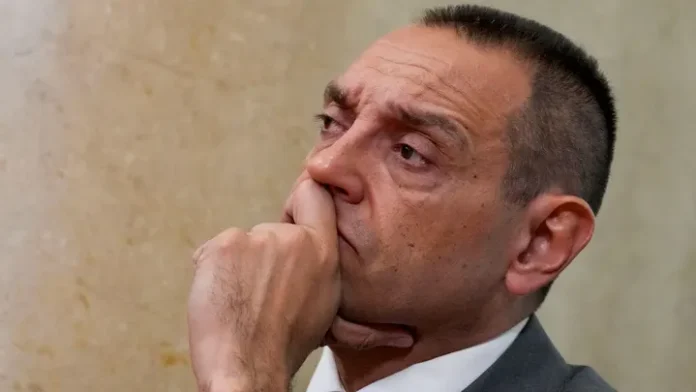Serbian Deputy Prime Minister Aleksandar Vulin’s official visit to Tehran underlines the strengthening of bilateral ties between Iran and the Western Balkan country.
The visit coincides with the inauguration of the new president of the Islamic Republic of Iran, Masoud Pezeshkian, which will take place on July 30.
Iran finds in Serbia a rare ally. Relations are built on mutual political support: Serbia appreciates Iran’s non-recognition of Kosovo, and Iran appreciates Serbia’s refusal to condemn its human rights and nuclear programme.
Historically, Belgrade and Tehran have maintained friendly relations. At the height of the Cold War, when Yugoslavia pursued a non-aligned foreign policy, Iran was one of its main trading partners in Asia, with annual trade exchanges of about $800 million. Yugoslav leader Josip Broz Tito visited Iran four times and maintained friendly relations with Shah Mohammed Reza Pahlavi, who in 1971 invited Tito to a festival in the Iranian desert to celebrate the 2,500th anniversary of the Persian Empire.
Tehran’s position on the Kosovo issue ensured Belgrade’s goodwill. Unlike several other Muslim-majority countries, Iran refuses to recognise Kosovo, considering Pristina an outpost of American militarism.
Vulin’s visit continues a series of high-level meetings between the two countries. In April 2021, then Serbian Foreign Minister Nikola Selakovic visited Iran, thanking Tehran for its stance on Kosovo and discussing ways to develop bilateral trade. In December 2022, Iranian Foreign Minister Hossein Amir-Abdollahian paid a return visit to Belgrade. Other senior Serbian officials have since visited Tehran, including Deputy Foreign Minister Goran Aleksic in August 2023.
Despite strong political relations, economic ties remain modest, with annual trade barely reaching 50 million euros. Serbia is cautious about expanding trade, which could trigger sanctions. Nevertheless, Serbia has increased oil imports from Iran. NIS, a Serbian oil giant with Russian capital, has doubled its imports of Iranian heavy crude from 126,000 tonnes in 2021 to 267,000 tonnes in 2022, according to the NIS website.
Serbian banks’ compliance with Western sanctions on Iran has hampered further economic relations. Since becoming a candidate for EU membership in 2012, Serbia has been cautious about economic engagement with Iran, especially after the Trump administration withdrew from the 2015 nuclear deal in 2018 and reimposed sanctions.
Serbian authorities keen to develop ties
Recently, however, Serbian officials have expressed a willingness to forge closer economic ties with Iran. On July 29, Samad Hassanzadeh, president of Iran’s Chamber of Commerce, Industries, Mines and Agriculture (ICCIMA), reiterated Iran’s willingness to expand trade relations with Serbia. In a meeting with newly appointed Serbian Ambassador to Iran Demir Kovacevic, Hassanzadeh proposed opening a trade and exhibition centre in Serbia and expressed disappointment over the unfulfilled 2021 agreement to establish a joint economic commission.
Hassanzadeh urged the Serbian ambassador to review the free trade agreement, to which Belgrade has not yet responded. Ambassador Kovacevic responded positively, emphasising Serbia’s commitment to expanding trade cooperation with Iran. He favoured the establishment of a trade council to explore opportunities and promised that the Serbian Embassy would work to achieve the trade goals set by both countries and revitalise existing agreements.
Despite the current restrictions imposed by Western sanctions, Serbia appears to be setting itself up for the long term, seeking to provide preferential treatment for Serbian companies in Iran should sanctions eventually be lifted or eased.
